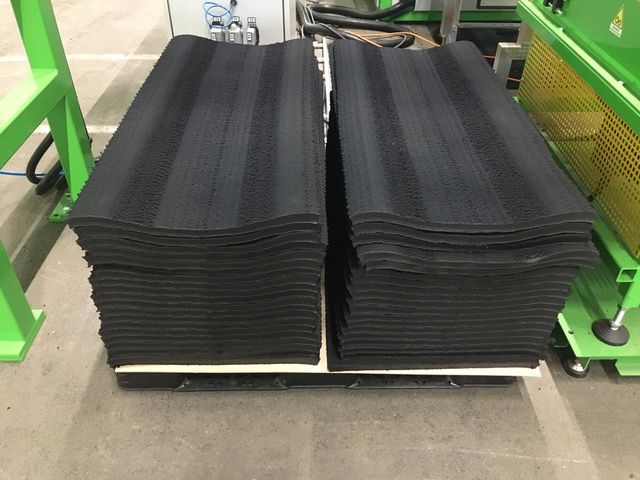Extended Producer Responsibility (EPR) formulator claims that the UK has always been ‘a bit of an odd bird’ when it comes to waste and recycling and has warned ‘these are not the big things yet’ after the UK’s policy gave in to cost of living lobbying
Thomas Lindquist, a Senior Lecturer at Lund University in Sweden, formulated the idea of the Extended Producer Responsibility scheme in the 1990s.

The UK government announced recently that it was delaying the fees associated with its flagship environmental policy of Extended Producer Responsibility for at least a year, amid warnings from the industry that the scheme will drive up prices. A rather convenient use of inflation as a lobbying tool to prevent the development of better recycling practices. A tool that only works against a weak government facing an election in the face of polling that suggests a landslide victory for the opposition unless the existing government can pull a rabbit out of its hat.
With some industry voices describing it as a relief that their calls for the government to “go back to the drawing board” had finally been listened to, Lindquist, the man who developed the concept of EPR some 33 years ago, intimated that ‘getting it right’ would not be straightforward.
“We have all said that the UK is a bit of an odd bird,” Lindquist told ecoveritas.com “They are organised differently. They are pushing over problems to the municipalities and putting pressure on the municipalities.
“I don’t think it is a good idea from a policy perspective and long-term development. But equally, we (Sweden) tried to do it differently but failed because we didn’t make it interesting for the industry. We didn’t make it interesting enough for producers to develop their products and offers. In various ways, we have done something good but failed on essential points.”
Lindquist’s point about making it interesting for the industry is one that Tyre and Rubber Recycling has made before. There needs to be a “greenhouse environment” to encourage the recycling industry. Linquist continues; “In Sweden and the UK, we have much more and better waste management than before. We already have a reasonable way of collecting much more. But producers don’t feel the pressure or the need to improve their offers. And the market doesn’t reward those that do. So, we have to ensure we get a system that rewards them.”
With many having invested valuable time and resources getting ready to implement EPR and bring about the step-change in recycling rates that the policy is designed to deliver, Lindquist believes the latest announcement was a missed opportunity for the UK to show strong leadership and commitment.
Producers had lobbied hard for a delay recently, even meeting with the Prime Minister to raise concerns over EPR in light of the recent cost-of-living situation. The latest delay will push the main part of EPR – the fees – to after the 2024 election, potentially adding further delays.
But Lindquist believes the industry was ready to press ahead and suggests that Defra should do a better job of “finding friends and understanding potential enemies”.
“I think most bigger companies don’t worry at all,” he added. “But they are not the ones going out in public. You normally choose the less progressive action if you are in an industry organisation and representing businesses.”
Associations can and do mask the willingness, or ability of members to act, especially if acting has a cost associated. Many years ago, talking to a representative of a major tyre manufacturer about recycling, Tyre and Rubber Recycling was told, “We are happy with the status quo [voluntary agreements in a free market], but our head office has told us that if EPR is proposed, we should support it.” Yet, The Tyre Recovery Association’s Peter Taylor is vehemently against EPR – serving as an example of what Lindquist has experienced.
“Throughout the years,” Lindquist continues. “When I’ve tried to be part of discussions, I tried to avoid associations and find representatives from companies because they are much more constructive. And they know well what the problems could be, but they are not saying we don’t want to do something from the beginning.
“So, I don’t think the industry is so much against it. And I think the European industry knows these are not the big things yet. The type of systems you (the UK) are discussing now will not change much. The cost would be marginal for the industry. I don’t think the true industrialists are afraid.
“This idea of finding your friends and understanding potential enemies. I think it’s much, much more important. Revolution is happening. I think the change will be slow, but I think we can start by making it possible to formulate the requirements which can be put into laws and standards and so on. And there are many people who are good at those things. And then we can start to do some real work.”

In an interview in Packaging Insights in February 2023, Lindquist argued that the issue runs deeper. That we can see a lot of recovery for recycling, but the waste is downgraded and, as he says, landfilled into products rather than replacing new materials. In essence, the recycled materials going into alternate uses, end up being taken out of the circular economy and potentially have a final destination of a landfill, rather than reuse or recovery.
Ecoveritas CEO Irvin Newbitt added; “The worry is the last five years of work and engagement with the sector are rapidly eroding, along with our optimism and energy. That is why it is now crucial that government, industry, and councils all put their foot on the floor in planning full implementation from 2025.
“Our mission remains to rise above this confusion and advocate for progressive change. We continue to stand ready to work with the government and industry to implement an EPR scheme that delivers a high level of recycling and effectively tackles packaging waste.
“And remember, the businesses that embrace change – and the political party that helps them – will be the ones that win.”


















